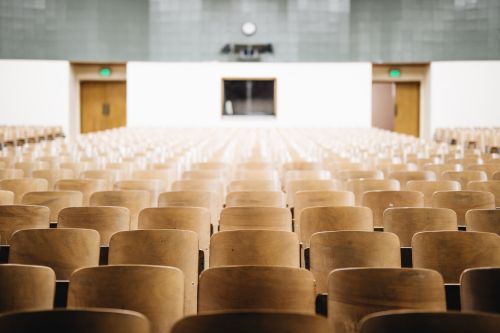
University of South Florida is a state college located in Tampa, Florida. Being accused of academic dishonesty by cheating, plagiarizing or other means can lead to strict punishment by the university. What should a USF student do if they are accused an academic violation? Read on for the answer from a lawyer for USF students.
What actions violate the USF Academic Integrity policy?
- Cheating
- Plagiarism
- Fabrication, Forgery and Obstruction – altering information, forging signatures (lab logs, internship hour forms), or limiting opportunities for other students.
- Multiple submissions – submitting the same work to two classes without consent.
- Complicity – helping someone else commit an academic integrity violation. USF also states that a student who knows about a violation and does not report it is also equally at fault.
- Improper use of teamwork credit – not pulling your weight when working in a group.
- Solicitation or purchase – selling or offering your work to others is considered a violation.
- Misrepresentation – turning in the work of someone else and claiming it is yours.
- Misconduct in Research and Creative Endeavors – This is a category that covers professional behavior in research.
- Computer Misuse – using the school email or school computers to engage in plagiarism
What types of punishment can a USF student face if found responsible for an academic violation?
The academic integrity policy at USF is very detailed. There are separate categories for undergraduate versus graduate students.Undergraduate students – for a level one offense where a professor is not sure a student meant to commit a violation, a student will receive level one sanctions such as: receiving no credit on assignment, attend a seminar on ethics, write a paper on a subject related topic, etc.Level two offenses – USF states that these are slightly more serious in nature (assistance from another student, other material, submitting same assignment to two classes) and therefore the punishment reflects such. If a student is accused of a level two offense, they may receive a failing grade for the assignment or a failing grade for the entire course along with a notation on their transcript.Level three offenses – These are considered more severe than levels 1 and 2. These offenses include cheating on exams, plagiarism, selling or giving coursework to others, etc. The punishment for a level 3 offense can include a suspension from USF. Level four offenses – These are the most severe and such the consequences are too. A student who commits a level 4 offense can be expelled from USF and have their transcript noted.
How will a USF student know if they are being accused of an academic code violation?
The process is very detailed and begins with the professor who will determine the severity and appropriate sanctions. The professor then tells the student their findings. The student can defend themselves in a written appeal and/ or Academic Integrity Review Board before the sanctions are finalized.
What should I write about in my appeal?
The appeal categories are limited a must include a student statement and point out any issues with the facts as presented by the professor, why the punishment is not correct, and include supporting documents. I strongly recommend hiring a student appeal lawyer to assist in drafting the appeal. The student will face fewer chances to fight the charges if they are not successful at the earlier steps in the process.
What is an Academic Integrity Review Board?
This is a panel composed of students and other instructors appointed by the Dean of the program. This board will hear both the professor’s and your evidence and decide if a student is responsible or not. They will also decide the appropriate punishment. Students can bring an adviser to this hearing and I always recommend doing so. I act as student adviser often and find that being there increases the students chance at a successful outcome. This is the students last chance to fight the academic violation charges within USF.
What if I am found responsible by the Academic Integrity Review Board?
You have no further options within USF. The decision before the Academic Integrity Review Board is considered final in the universities eyes. However, students are allowed one final chance through a Writ of Certiorari which is an appeal is filed in the Circuit Court. I do caution students; your best chance is putting everything you have towards the earlier processes. Writs can take over a year to be ruled on and are very narrow as far as the issues that can be argued.
Can you help me fight my academic integrity charge?
Yes. I help students at USF, all over the state of Florida, and throughout the United States fight accusations of academic violations in school. My specialized experience with the university integrity process gives students the best chance at a successful outcome.
Call today for a free consultation. 855-338-5299
Richard Asselta is an award-winning attorney who defends USF students facing academic violations and code of conduct issues. Call today to avoid a suspension or expulsion from the University of South Florida. Click here to read what clients are saying about Richard on AVVO, an attorney review website. http://ugs.usf.edu/policy/AcademicIntegrityOfStudents.pdf
